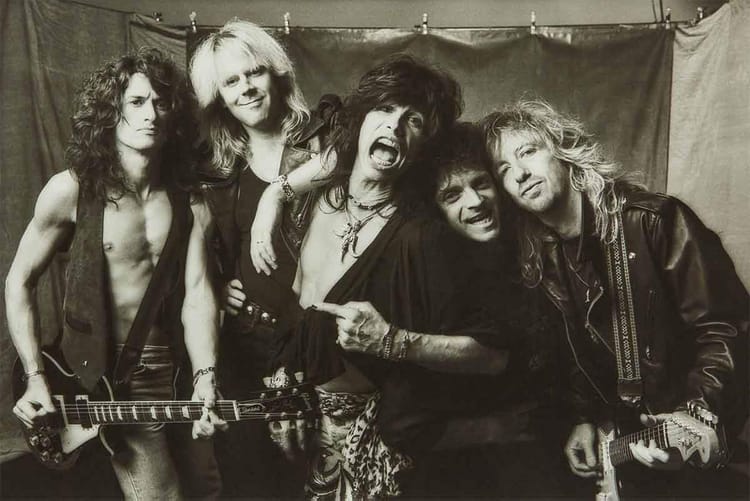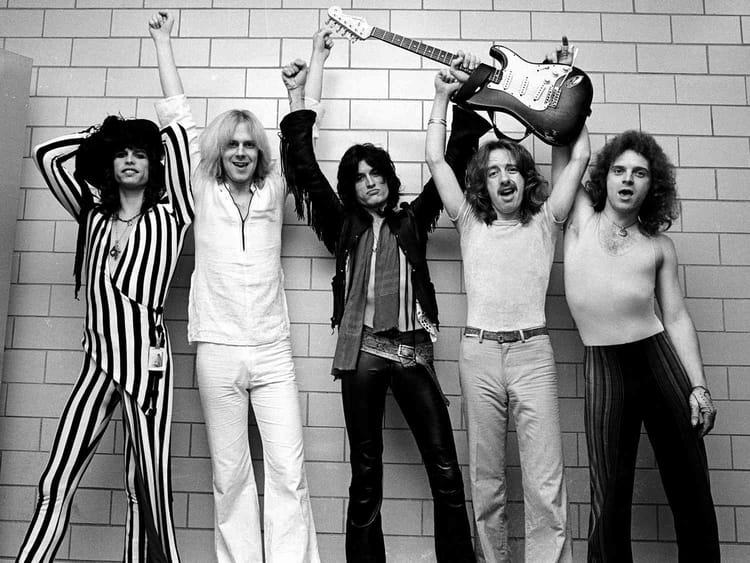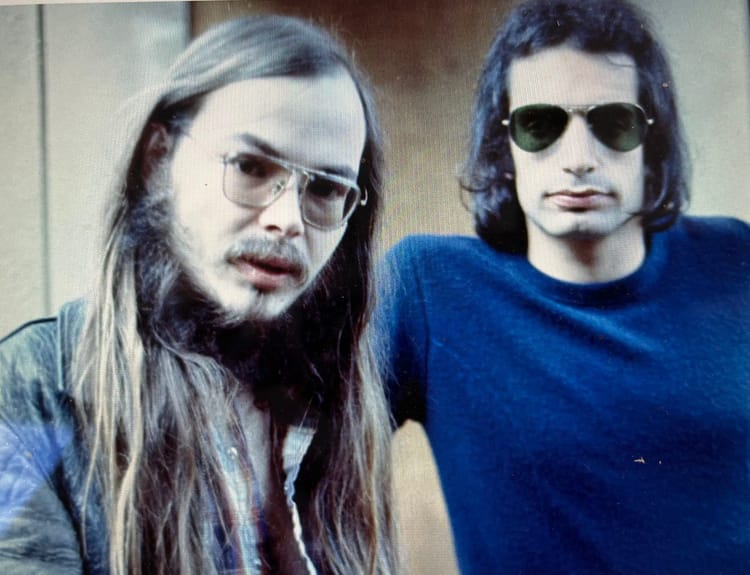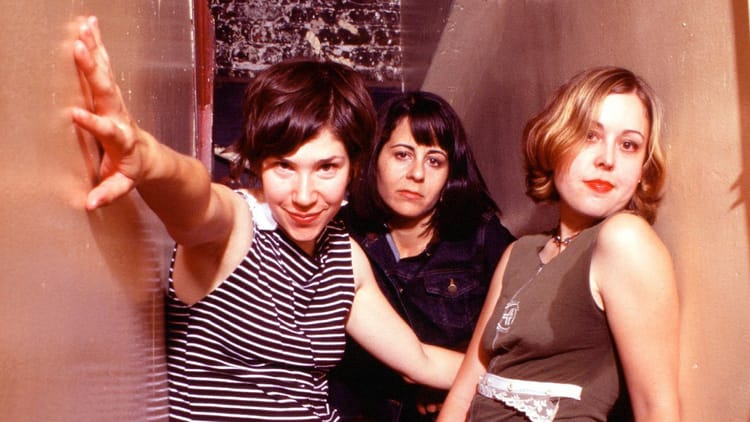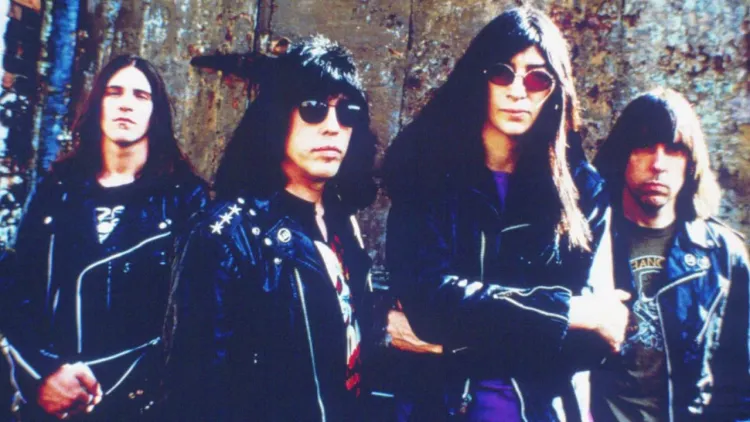The Afghan Whigs: Anthony's Album Guide
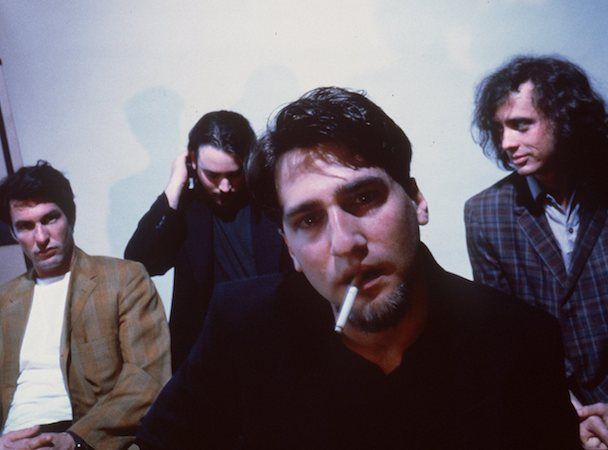
My handy dandy profoundly subjective numerical rating scheme is decoded here. A pair of introductory playlists for the band (one audio, one video) here.
Big Top Halloween (1988) 5
Up In It (1990) 6
Congregation (1992) 7
Uptown Avondale EP (1993) 7
Gentlemen (1993) 8
What Jail Is Like EP (1994) 7
Black Love (1996) 8
Bonnie & Clyde EP (1996) 4
1965 (1998) 7
Unbreakable: A Retrospective 1990-2006 (2007) 6
Do To The Beast (2014) 8
In Spades (2017) 8
How Do You Burn? (2022) 7
While the ‘80s were full of young white dudes with guitars making dubious references to sex and race, Cincinnati’s Afghan Whigs never settled for the limited purview of pigfuck. Though not above cheap irony and jokey detachment, they genuinely loved the flamboyance and emotional anguish of R&B, and they genuinely wanted to be seen as sexy, intimidating guys. In terms of hype and label attention, that gave them a serious edge on other midwestern underground bands during the alternative rock explosion. It also makes them seem ridiculously niche in hindsight: the Replacements high on blaxploitation soundtracks. But if you don’t balk at the basic premise (“these Husker Du fans would like to describe dancing with the devil and then do a Motown cover”), bandleader Greg Dulli’s output is consistently spry and engaging. Evolving his sound even as commercial potential turned into small-c cult stardom, Dulli remains committed to playing the anti-hero and capturing the pulpy good bad times in his head. This steadfastness has been rewarded by not just his audience but critics, Pitchfork still giving them high marks. How many 90s bands who never went gold would be allowed to back Usher at the SXSW Fader Fort in 2013? Definitely not Dishwalla.
Dulli, who’d already dropped out of film school, tried acting in LA and led a band called the Black Republicans by 21, founded the Whigs in 1986 with lead guitarist Rick McCollum, who had a novel taste for slide, and bassist John Curley, whose dad was CEO of Gannett. Though they haven’t bothered with a second printing of their tentative self-released debut (on YouTube, if you don’t have enough ‘80s Soul Asylum albums), Big Top Halloween was good enough to get them on Sub Pop despite the three-hour time difference between Cincinatti and Seattle. They paid back the honor handsomely with Up In It, their sound beefed up and surlier, suggesting a Die Kreuzen that fucked. Still, the songwriting wasn’t going to win anybody who didn’t know Die Kreuzen.
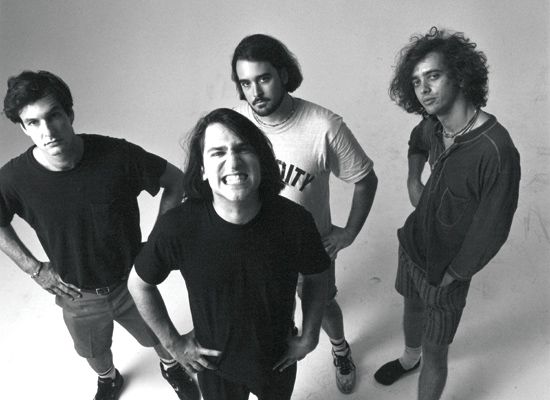
That issue is resolved on Congregation, a major leap forward in ambition with an 0:47 intro, a sincere (if still annoying) Jesus Christ Superstar cover and a hidden track (known as “Milez Is Ded”) so good they wound up making a video for it. Their taste in eye-grabbing titles had shifted from “Retarded” and “White Trash Party” to “I’m Her Slave” and “This Is My Confession,” flaunting an overwrought horniness that came off as alluring and even mature to some among aspiring monks like Ian MacKaye and Eddie Vedder. (No comment on how anybody took their race-baiting videos seriously - I was a tween and wouldn’t see them until Yahoo Video). The back half of the album is an overreaching drag (seriously, Andrew Lloyd Webber?), but the hoarse wailing and wild-ass waka-chika on singles like “Conjure Me” and “Turn Off The Water” still make for arresting drama today. Perhaps hoping to contextualize their taste for “black woman, white man…can you handle it?!?!” iconography, the Uptown Avondale EP features four yearning soul covers with strikingly original but respectfully gorgeous arrangements (and a goofy, Madchester-esque remix of “Milez Is Ded”).
That time spent studying the classics paid off big-time on Gentlemen, their major-label debut. No longer racing to the next climax, the band slows down, uses space and picks its battles decisively as Dulli describes the perspective of a young bohemian newly living a glamorous life of wine, women and song - or at least sexual and chemical codependency (“I got a dick for a brain, and my brain is gonna sell my ass to you”). Focusing enough to achieve thematic unity without getting bogged down in concept, Dulli’s critical distance makes it easier to forgive prison metaphors and exclamations like “your infection, please!” You don’t have to take the sneering braggadocio and self-loathing at face value, you just have to recognize it as a phase or a mood (despite the heteronormative signifiers, the album resonated more once I put myself in the shoes of his all-too-available mate, given voice by Scrawl’s Marcy Mays on the aching, ironically empowered ballad “My Curse”). For all the cinematic pretensions (the album was “shot on location” at Ardent Studios), the band wisely avoids a trite plot resolution, following a snarling summation of the situation (“Now You Know”) with an obscure Tyrone Davis cover and a soaring instrumental coda. The erotic ambiguity of this sequence might be Dulli’s greatest creative accomplishment; a real movie director could never. (What Jail Is Like is another fine covers-heavy EP, best-in-show not lifted from Motown but from fellow Ohioans The Ass Ponys.)

Though the commercial reaction to Gentlemen was noncomittal, critics loved the thing. High on the praise, his new friends in post-Tarantino Hollywood and dreaming about some kind of noir rock opera, Dulli was free to follow the muse to an album somehow both more and less ambitious. Black Love is as bombastic as alternative rock got, Dulli spitting fragments of pulp fiction over gobs of guitar, extra percussion, cellos, a variety of ‘70s keyboards, the works. Cutting self-assessment is replaced by melodramatic fantasy, a threatening “come and get some, baby!” and a pleading “baby, come and gimme some” co-existing on side one. Side two features a six minute epic where Dulli screams the word “love” for eight seconds (twice), an eight minute epic that shamelessly weds “Layla” with “Purple Rain,” and truly bonkers criminal role-playing on “Honky’s Ladder,” a song (nay, a first single!) that’s only explicable when you recall the aforementioned white director won an Oscar for a movie where he shouts hate-speech in a bathrobe at Samuel L Jackson. Forever recalled as cassette accompaniment on cold afternoons raking leaves in my teens, I find Black Love as musically appealing today as I find it conceptually ridiculous. I can only imagine how this swaggering symphonic grunge comes off without cultural or personal context, but I can’t pretend I don’t get off on it. And, in a world where The Boondock Saints got a sequel, I know I’m not alone. (The Bonnie & Clyde EP offers jazz-club covers of TLC, The Wizard Of Oz, Billie Holiday and their touring keyboardist. It's a bit much.)
Blossoming cult aside, Black Love didn’t make much of a dent in the fading alterna-age, leading a Rolling Stone review section yet only getting three stars. The band left Elektra for Columbia, where they’d get to open for new label mates Aerosmith and release 1965, an album that makes no apologies for Dulli’s mack-daddy enthusiasms (there’s a song perfect for a car chase named “John The Baptist” where Dulli shouts “let’s get it on!” before a horn blast), while trying to shape them for radio. The first side gets by on professional enthusiasm (you might remember the Sugar-Ray-Dipped-In-Sexy-Sauce come-on “66” from She’s All That), but things get alarmingly cutesy (“Citi Soleil” both predicts and pales to Santana’s “Smooth”), corny (“sleep is the cousin of death/ at least that’s what my man Nas say”) and uninspired (The Afghan Whigs releasing “The Slide Song” is like Dinosaur Jr. releasing “The Fuzzbox Song”). Once touring was done and the contract fizzled, the band couldn’t be bothered to get together in the same town again, amicably splitting for the foreseeable future.
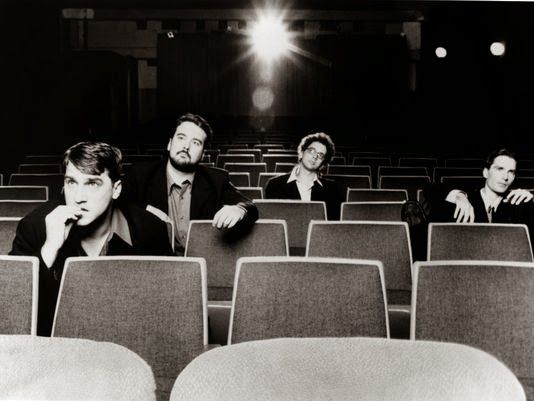
Dulli spent the next decade focused on his Twilight Singers project, which I debated incorporating here and may give its own post (I’m a big fan of 2000’s Twilight). The Whigs got together for two new tracks in 2006 when Rhino put together a compilation that sadly doesn't cherry pick from Congregation & 1965 astutely enough to merit purchase (and I'd have believed the new songs were 1965 outtakes). That was that until Curley played with Dulli on a tour in 2010. Once it was clear Rick McCollum was amenable, it was reunion tour payday time (original drummer Steve “not the guy from The Wire” Earle left in 1995, the seat never holding much authority again). I caught them at Terminal 5 in 2012, impressed that Dulli’s hoarse but melodic vocals hadn’t curdled after twenty years, and annoyed their twin-guitar sound was muddied by both a third guitarist and a keyboardist (both from the Twilight Singers). I was also annoyed the climactic “Faded” explicitly evolved into “Purple Rain” at the end. Plenty disagree, and I love Prince too, but your victory lap is not the time to suggest you’re second tier.
A new album was announced for 2014, and soon they revealed McCollum was no longer in the group. For a few years, I was turned off that the band’s name was being used for a line-up that was basically the same as Twilight Singers (while he’s an accomplished engineer, I don’t think anyone ever went “oh that’s definitely John Curley on bass”). Even if Dulli only revived the brand for improved concert guarantees, I eventually appreciated that he was still taking pride in the work and making the most out of the increased attention.
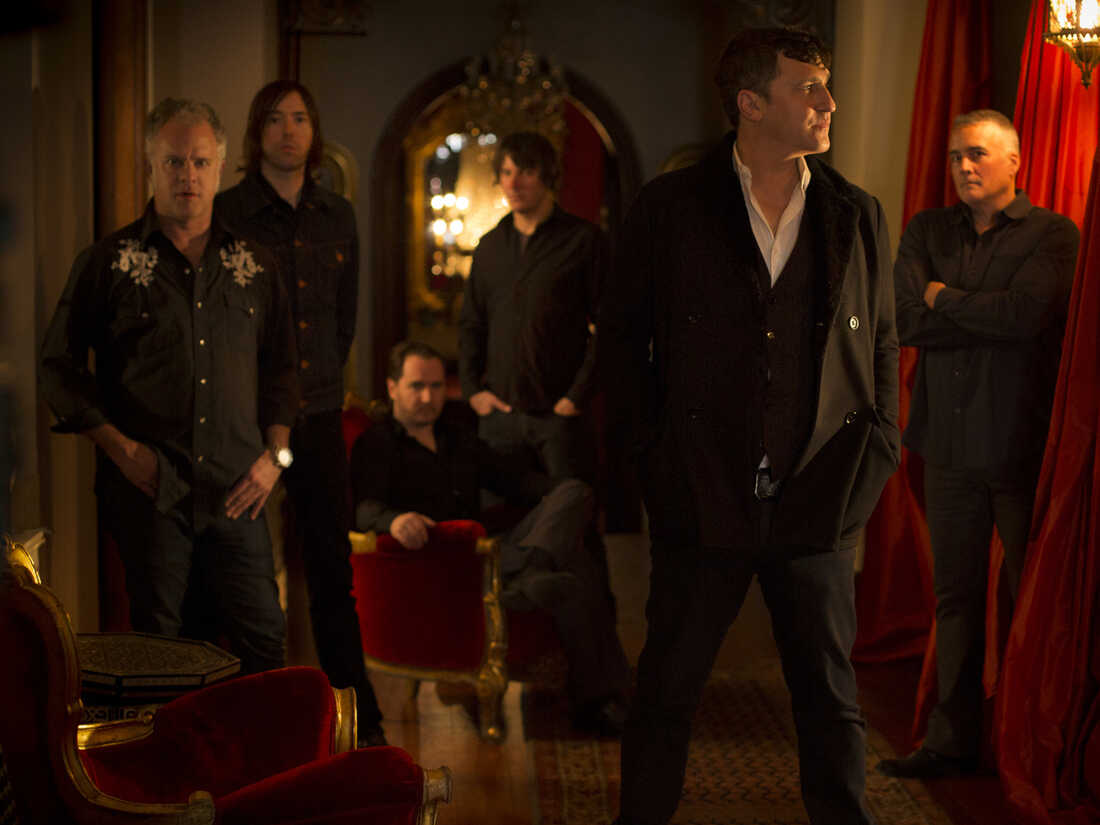
If Do To The Beast subsumes the band into Dulli’s auteurist identity, it does so fully and unapologetically. Not only is McCollum’s sound not imitated, I’m not sure where it would fit in the mix. The album was “shot” in seven cities with eight engineers, which might explain the sound’s digital edge. And I really mean “edge,” with the arrangements jolted by sudden crescendos and unexpected elements, Dulli keeping the focus on the moment rather than his voice. For all the drama and anticipation leading up to it, Beast is actually shorter than any of the band’s previous albums. The result is a rewardingly brisk affirmation of showmanship constructed to leave the fan wanting more.
In Spades, a full four minutes shorter than Beast, is blessedly more of the same. The opening “Birdland” sets the tone with strings, cooing background vocals and harshly edited blurts of keys arguably more prominent than Dulli sighing “so in a haze of feverish lights, the satyr arrives to the throne…” The noir poetry’s there if you want it (and based on the wack imitations they inspire in reviews, plenty do), but Dulli’s a director even more than he’s a star, delighting in all the tricks at his disposal to keep people in seats.
How Do You Burn? announces “I’ll Make You See God” in the blistering opener, but the band’s 21st century bag of tricks is getting more familiar. COVID lockdown required more remote recording, and may explain the lack of growth, but it did also allow for some quality Zoom cameos. Though no “My Curse II,” it’s still terrific to hear Marcy Mays again on “Domino and Jimmy,” especially if you’re annoyed her band Scrawl hasn’t had a second life. With flashes of inspiration like that, I wouldn’t be surprised if a veer to the left is coming. After all, Dulli’s established he’s not one to settle for diminished returns. This is a brain that’s been successfully selling his ass to fans for over thirty years.
(Black Love and Gentlemen are respectively at 219 and 224 on My Top 300 Favorite Albums of All Time. I'm telling you this because I've found people are more inclined to discuss and share reviews if there's a quantitative element at the top or bottom they can easily debate. Prove me right!)
